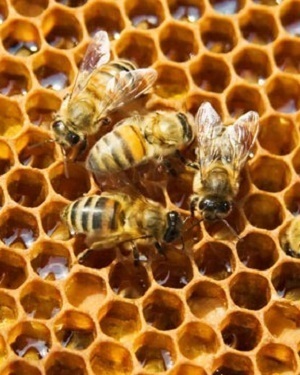The Honey Bee Health Coalition celebrated Pollinator Week on June 20-27 with the goal of spreading awareness to farmers of the importance of bees to many crops and the continued reduction of honey bee populations.
The National Corn Growers Association (NCGA) took part in the event, along with almost 40 different agricultural organizations.
“Corn does not require pollination by honey bees, but NCGA recognizes the integral role they play in a productive agriculture system,” NCGA Preisdent Chip Bowling said. “We are committed to improving the health and viability of pollinators as part of our overall sustainability efforts. We are also engaged to assure steps being taken to help pollinators are well researched and based on science.”
NCGA blames the decline in bee population to neonicotinoid seed treatments, but there has not been substantial and credible evidence to support this claim. The Honey Bee Health Coalition believes the cause for the decline is a result of a range of stresses among bees.
“What we know so far is that there are a handful of issues that can cause problems for bees,” Carson Klosterman, a member of NCGA’s production and stewardship action team, said. “Severe weather, pests and disease, lack of forage and nutrition, lack of genetic diversity and incidental pesticide exposure may all be causing problems.”
Klosterman does not believe neonicotinoid seed treatments are more harmful than helpful. The treatments are used during the early stages of growing season when bees are not active, they are safer for human use, they absorbed by plants which prevents extensive sap sucking and boring insects unlike other sprays.
Finally, the accurate placement of the seed treatments allows for less insecticide use. Klosterman urges farmers to educate themselves about bees and introduce themselves to local beekeepers.




 Alerts Sign-up
Alerts Sign-up